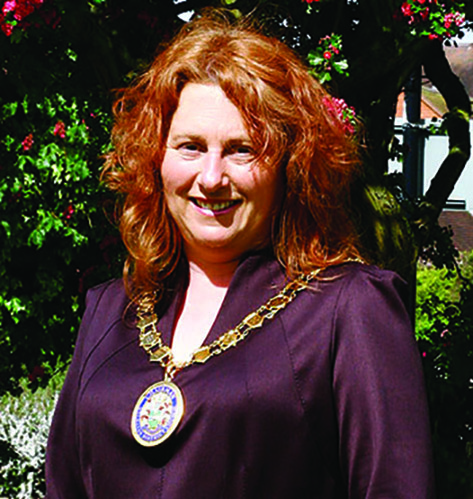A Midland council looks set to investigate a local 16 to 19 provider after Ofsted inspectors found it was failing to safeguard learners.
The chair of Worcestershire County Council’s Children and Young People Overview and Scrutiny Panel, Lynne Duffy, (pictured) told FE Week she would be calling for a probe after Beacon Employment was hit with a grade four rating by the education watchdog.
Its report on the 88-learner provider, which specialises in supporting young people with learning difficulties, was published last week and followed inspection at the end of September.
It said: “Safeguarding arrangements for learners’ are inadequate because Beacon Employment does not meet its statutory requirements.”
Beacon chief executive Sandy Beech claimed the problem surrounded her staff not having the correct level of qualification, but Ofsted declined to comment further on the issue.
Nevertheless, the findings have resulted in the Education Funding Agency moving to terminate its contract with the Kidderminster-based provider, and the local authority also looks set to act.
Coun Duffy said: “It is concerning that Beacon Employment doesn’t have proper safeguarding in place, definitely — safeguarding is absolutely paramount.”
She said she would bring the issue before her panel at its next meeting, in December, and would call for a full-scale council investigation into whether the problem was more widespread in the area.
“As a scrutiny team we would then ask for a report on all education providers, looking across the board to see where there’s a weakness and tell the regional Children and Safeguarding Board too,” she said.
Worcestershire County Council’s cabinet member for children and families, Liz Eyre, said she was “aware” of the Beacon issue and a spokesperson for the authority added it was “looking into it”.

The spokesperson added that Beacon must “conduct a thorough and comprehensive review” of its safeguarding “as a matter of utmost urgency” and should ensure all staff responsible for safeguarding “quickly receive appropriate training”.
Inspectors judged the provider inadequate across all headline areas, saying not enough learners were achieving and managers had failed to respond to the areas for improvement highlighted during Beacon’s last inspection, which resulted in a grade three rating, in February 2012.
A Department for Education spokesperson said: “We are moving to terminate our contract with Beacon Employment as it has been found to be failing in its duties. Ofsted will work with the institution and we hope it will improve sufficiently for us to work with it in the future.”
However, Ms Beech told FE Week she “did not recognise” the Ofsted result and said claims the organisation was failing to safeguard learners were “ridiculous”.
“We don’t accept the grades — there are areas within the report we think are extremely questionable,” she said.
“I’m not saying we’re perfect but we work with a range of people with all sorts of issues, we work with social workers and others closely on safeguarding issues… we have experience and knowledge, and that’s what it’s about, not ticking a box”
Ms Beech claims Ofsted focussed on the fact that no staff member responsible for safeguarding had a level three safeguarding qualification — and so failed to meet statutory requirements.
The inspection report was published in the same week as the fourth and final Ofsted monitoring visit report for Stockport College, which was branded inadequate in October last year.
The monitoring visit, at the end of September, found the college had made reasonable improvements in maths and English provision, governor oversight, teaching and accommodation, but insufficient progress on improving success rates.
Interim principal Ian Clinton said: “While I recognise the college still has improvements to make, I am reassured this latest visit endorses much of the hard work that has taken place.”





